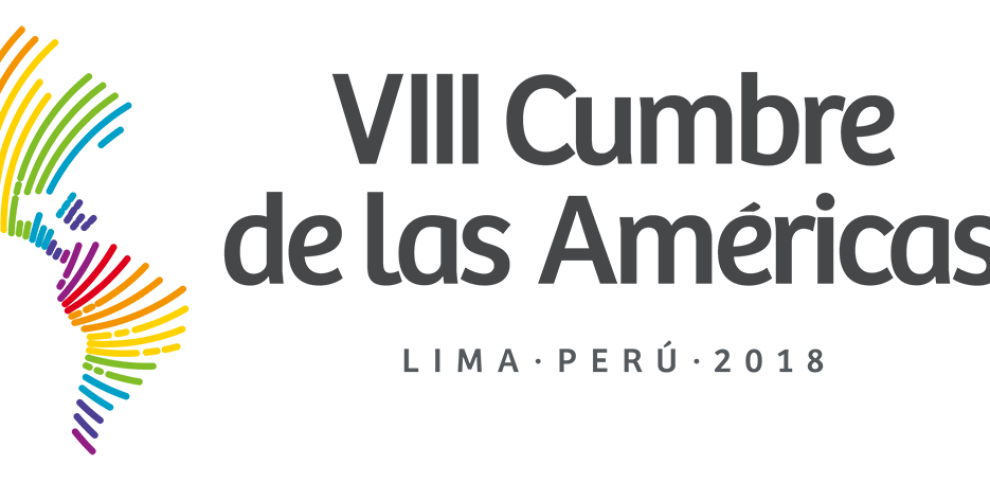A Stormy Summit
This Friday and Saturday the capital of Peru, Lima, will host the VIII Summit of the Americas, a diplomatic meeting wanted by the US in the mid-1990s, marked by the envisaged "fall" of the Cuban Revolution.
This Friday and Saturday the capital of Peru, Lima, will host the VIII Summit of the Americas, a diplomatic meeting wanted by the US in the mid-1990s, marked by the envisaged "fall" of the Cuban Revolution.

This Friday and Saturday the capital of Peru, Lima, will host the VIII Summit of the Americas, a diplomatic meeting wanted by the US in the mid-1990s, marked by the envisaged "fall" of the Cuban Revolution. Not by coincidence its first headquarters was Miami.
However in 32 years the political contexts have changed again and again. A good proof of this being that in the previous meeting, held in Colombia, all the participants, with the exception, of course, of the US and Canadian governments, expressed to the then receptive President Barack Obama that if Cuba were not invited to the next Summit (this year’s one) there would be no more summits.
Today, four years on, the change in the correlation of forces in the region is an obvious reality. Obama has been replaced by an aggressive Trump and the unstable balance between progressive and revolutionary governments and those led by the traditional allies of the US has a different sign.
Argentina marks the state of the advances of the oligarchic right of neoliberal policy, to which we have to add the soft and legal coup that managed to pushed aside the elected President of Brazil, Dilma Roussef, and return the administration of this country-continent, to the old oligarchical right.
The newly elected President of Chile, Sebastián Piñera, is a neoliberal millionaire who returns to the government house, while Colombia, Mexico, Paraguay, El Salvador, Venezuela and Bolivia are waiting for short-term electoral processes, whose results will give us a real idea of the correlation of forces in the region.
On the progressive side, we are left with Venezuela (excluded from the Summit), Bolivia, Cuba (which is attending for the first time in the midst of a delicate process of internal transformation), Nicaragua, El Salvador (with an uncertain future after the disastrous results of the legislative elections), and surely two or three small, and always vulnerable, Caribbean countries, logically grateful for the Petrocaribe project maintained by Venezuela.
Between the last summit and this one, two significant and influential personalities have physically disappeared: Fidel Castro and Hugo Chávez. Furthermore the governments of Argentina, Chile, Brazil and, surely Ecuador, have changed color, while Uruguay has definitively mitigated its position. The forecasts so far indicate that Colombia, Paragüay and El Salvador will strengthen the positions of the right.
The reality is that the traditional hegemony of US imperialism has managed to recover its positions, without much cost or effort, as a consequence of the serious errors of vision, practices and perspectives of the left and progressive governments that marked Latin America in the last 20 years.
The Summit of governments in Lima is neither decisive nor binding, and everything indicates that it will have as main objectives to affirm the neoliberal economic trend that prevails today in the region, and to support, by simple majority, the harassment against the Venezuelan Government with an eye to overthrow it by any means. The latter being at the moment the main and strategic objective of the US Government, and all its allies in the area
The last-minute announcement that Donald Trump will not attend this "stormy” Summit, and that he has suspended his first trip to Latin America (Peru and Colombia) to be able to deal with Syria, and other serious and legal domestic issues, speak clearly of the fact that the US has no concern regarding the re-establishment of its hegemony in Latin America: it is on the right track and is not at risk.
However in politics as in football, nothing is definite until the end of the game, so beyond this summit, which will surely be stormy and full of incidents, we will have to add the final results of all the electoral processes under way.
But in this equation we must also count on the attitude and reaction of the social, civil and political movements that, in the last two decades, have been the basis for Latin America to become the scene of important social and economic transformations.
Two decades of progress, but also full of contradictions and shortcomings in terms of leadership and consistency.
For the moment it may be appropriate to underline that America remains, despite everything, the region of the world with the most unjust distribution of wealth, and that now neoliberalism threatens again the discreet social advances that have been enjoyed by millions of people previously excluded.